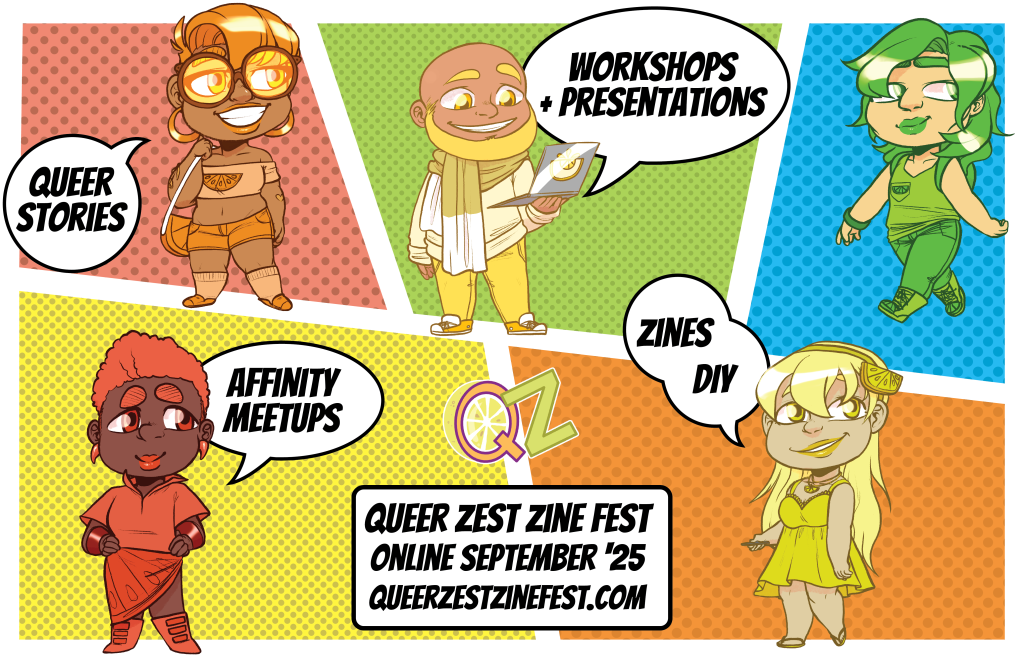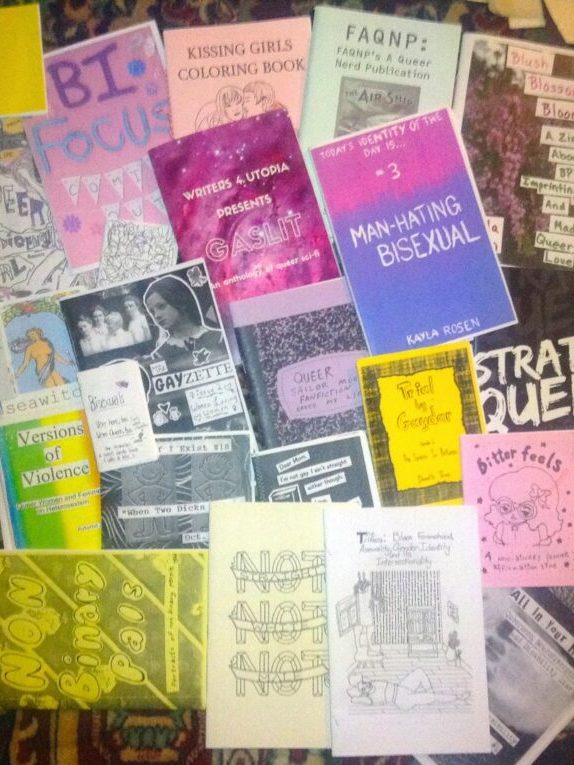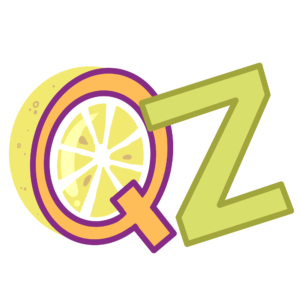
Announcing Queer Zest Zine Fest 2025!
Queer Zest Zine Fest is going on now! Check out our calendar for our live events, or Tablers to browse our vendors.
What to expect at QZZF 2025:
- A full month of festivities
In 2025, QZZF will take place over the whole month of September, with live events primarily happening on the weekends. - Revised options for tablers
We are adding Elevator Pitch sessions to our itinerary in 2025, where tabling zinesters will be invited to share a 10 minute pitch introducing people to their work. - Collaborative anthology
QZZF Vendors are invited to submit one page of art or writing to a collaborative anthology
Partners
QZZF is partnering with http://zine.cafe to produce our first ever anthology zine! Subscribe to our newsletter for updates on this project.
Queer Zest Zine Fest is a member of the comicsfair.online webring. Check out other online comics and zine fairs here:
ONLINE COMICS & ZINE FAIR WEBRING
<PREV RAND LIST NEXT>
More Info
What are Zines?
Zines are small self-published booklets on topics as varied as prose, poetry, comics, non-fiction, art, photography, personal narratives, and more. Zines are generally produced with a printer or photocopier—with digital zines becoming more and more popular—and distributed by the same individual or group who created them, with a print run of 1000 or less for print zines. Zines are associated with underground subcultures and have traditionally been a voice of those who are underprivileged or misrepresented in society.

What is a Zine Fest?
A zine fest is an event, usually in person, but increasingly online, where zine creators sell and trade their work, socialize with other zine creators (“zinesters”) and zine fans, and where attendees can attend talks, panels, workshops, and/or open mics. There are specifically queer zine fests all over the world!
Why Queer Zines?
LGBT periodicals existed as early as 1870, with the publishing of Uranus by Karl Heinrich Ulrichs. Germany had several queer periodicals in the 1920’s, Die Freundschaft, Die Freundin, and Frauenliebe. Queer life thrived in Germany at that time, but fascism in the 1930’s forced LGBT folks back underground. Although these publications were not specifically categorized as “zines” (the word didn’t exist then), they were independently published booklets and distributed on a small scale.
In 1950’s USA, homosexuality was believed to be tied to Communism, and openly LGBT people were often imprisoned. The UK also had high-profile homosexual arrests at that time period. Gay men were often subject to entrapment in order to “catch” them in homosexual behavior, and bars frequented by LGBT folks were often raided. Even with that risk, the community was driven to find each other, and covert organizations formed.
The Mattachine Society was a society for gay men which published a journal with articles on dealing with police, how to avoid entrapment and other stories of interest to the gay community. The Daughters of Bilitis, formed independently of Mattachine Society, published a newsletter for lesbians which was distributed quietly from person to person and via mail. For an in-depth analysis of these societies and other independent LGBT newsletters, see this article “The Fountain Pen and the Typewriter”: The Rise of the Homophile Press in the 1950s and 1960s or the documentary series Equal on HBO.
In present times, many LGBT and queer folks live isolated lives. Although queer rights have progressed in the US, UK and other countries significantly since the 1950s, folks in rural and isolated areas still struggle to find community and connection. Zines are a form of self-expression as well as a way to connect with others. Online zine swaps and zine fests bring together people and ideas from around the world. It is crucial for LGBT and queer folks to know that they are not alone.
